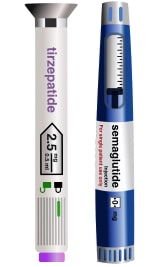What Medical Tests Will I Need Before Bariatric Surgery?
 Once the decision has been made to undergo bariatric surgery, the weight loss journey ahead can feel both empowering and overwhelming. To help patients take the process in stride, our Chicago bariatric surgeons provide resources to focus step-by-step, including how they can best prepare for the procedure. One of the most important steps is pre-operative testing.
Once the decision has been made to undergo bariatric surgery, the weight loss journey ahead can feel both empowering and overwhelming. To help patients take the process in stride, our Chicago bariatric surgeons provide resources to focus step-by-step, including how they can best prepare for the procedure. One of the most important steps is pre-operative testing.
Prior to treatment, patients will need to complete a thorough medical evaluation and series of health tests that are critical to the safety and success of weight loss surgery, including sleeve gastrectomy and gastric bypass. The tests will examine internal organs and measure chemicals within the body to help detect any underlying conditions, diseases, or disorders. It is usually recommended to complete the following tests within a reasonable time before surgery, though the specific tests may vary based on individual patient needs::
Laboratory Tests with Blood Work
- Complete Blood Count (CBC) for white blood cells, red blood cells and platelets
- Comprehensive Metabolic Panel (CMP) for liver and kidney functions and electrolyte, glucose, and protein levels
- Lipid profile for cholesterol and triglyceride levels
- Thyroid function for hormone levels and metabolism
- Coagulation panel (blood clotting)
- AIC
Imaging and Diagnostic Tests
- Chest radiograph (X-ray) to detect respiratory issues by reviewing the heart, lungs, and surrounding areas
- Electrocardiogram (EKG) to record the heart’s rhythm, chamber size, and muscle thickness. EKGs can detect an irregular heartbeat (arrhythmia), congenital heart disease from birth, coronary artery disease (blood flow issues), history of heart attacks, heart failure or weakening, cardiomyopathy (overly thick or large heart muscle), and heart valve disease
- Echocardiogram, or cardiac ultrasound, to examine the structure and function of the heart, mainly to diagnose heart disease using high frequency sound waves to create pictures of the heart, valves, and chambers
- Upper gastrointestinal (GI) endoscopy or an upper gastrointestinal (GI) X-ray to evaluate any abnormalities of the stomach and esophagus, especially for patients with significant gastrointestinal symptoms such as acid reflux
- Abdominal ultrasound to assess the liver, gallbladder, and pancreas
- Sleep study using a polysomnography to test and record brain waves, oxygen level in the blood, heart rate, and breathing during sleep to identify patients with obstructive sleep apnea (OSA)
- FibroScan® to evaluate the liver
Other testing may be required for patients that have a history of using tobacco, steroids, or certain drugs/medications, as these substances may lead to issues during the recovery process.
At Suburban Surgical Care Specialists/Kane Center, our priority is to achieve the highest standards of patient safety and care before, during, and after weight loss surgery — beginning with these important tests — to reduce potential risks and complications.
For more information about preparing for bariatric surgery, or to schedule a consultation with one of our board-certified surgeons, please contact us today.
Additional Medical Resources for Bariatric Surgery Testing:
NIH: Obesity Surgery Preoperative Assessment and Preparation
Stanford Medicine Healthcare: Diagnostic Tests for Bariatric Surgery

